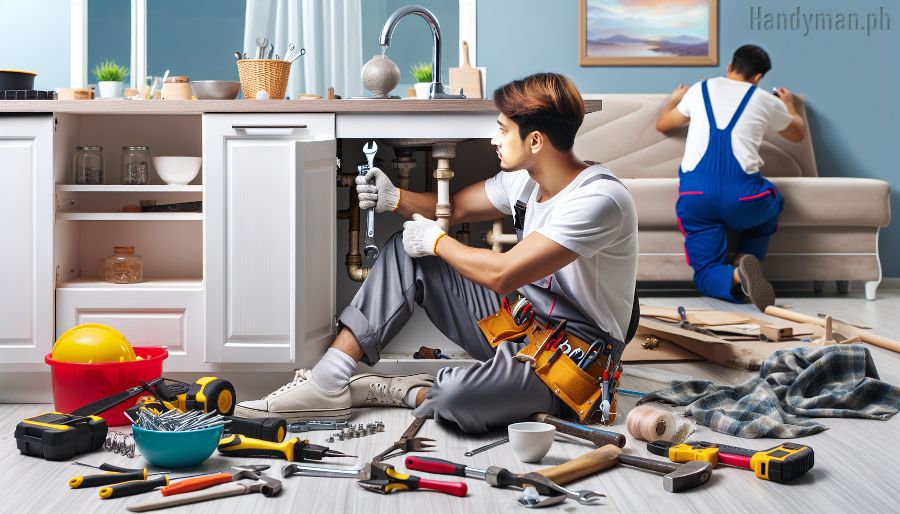We all know how important plumbing systems are in homes. They bring us hot and cold water, take away waste, regulate indoor climate, and a host of other functions. Showers and baths would be much less satisfying without them!
Plumbers are skilled tradespeople who install, repair and maintain piping and plumbing systems in homes, buildings, and other structures. They work with a variety of materials and tools to carry out their tasks. Contact Plumbers Aurora CO now!

Plumbing is a skilled trade that requires a high level of knowledge and understanding of both physical science and the ability to follow technical drawings and plans. It’s an excellent career choice for people who love working with their hands and have a knack for problem-solving. And since the demand for plumbers is high, it’s a great way to make good money.
According to Explore the Trades, plumbers are among the highest-paid workers in the construction industry. And because of the growing need for sustainable water systems, there’s a lot of opportunity to advance in this field.
Plumbers work with pipes and fixtures that provide running water, sewage, and waste disposal in homes and commercial buildings. They install and repair these systems so that they can function properly. The work can be incredibly satisfying, but it can also be physically challenging. For example, plumbers may have to climb through crawl spaces or work in tight corners, and they might need to lift heavy equipment or dig trenches.
The plumbing industry also provides a sense of stability. Because it’s an essential service, plumbers are in demand year-round and can find jobs even during slow economic times. Plus, the skills learned in this field can be applied to many other industries.
There are many reasons to choose a career as a plumber, from job security to the satisfaction of working with your hands. And although the work can be messy, it’s an excellent option for people who want to build a rewarding and lucrative career. If you’re thinking about getting into the plumbing business, consider these ten reasons why it might be the right career for you.
Plumbers Protect the Health of the Nation
When you think of noble professions, doctors and first responders come to mind for most people. However, a less well-known career that is just as important but often overlooked is plumbing. Plumbers work to protect the health of the nation. It is not an exaggeration when we say that without sanitary plumbing, disease and death would be rampant.
In the early 1900s, a plumbing company created a poster with the slogan, “The Plumber Protects the Health of the Nation.” This was not just marketing fluff; it was a true statement of fact. Until the advent of sanitary plumbing, diseases such as cholera were common in America. With the help of plumbers and sanitation engineers, countless lives were saved by keeping drinking water and waste water separate through proper drainage systems.
Today, it is estimated that life expectancy in the United States has increased by 20 years since the invention of sanitary plumbing. This dramatic increase in longevity is due to many factors, including advancements in medicine and better living conditions, but plumbers are a big part of this story. Without sanitary plumbing, the world would be much different than it is today.
Regardless of economic conditions, plumbing is always in demand. New construction projects, remodeled homes, and even public buildings all need plumbing services, which ensures a steady flow of work for plumbers. This makes the job very stable and a great choice for those looking to avoid uncertainty in their careers.
Plumbers make a decent salary and have the option to start their own businesses, which increases their earning potential. They also have the opportunity to learn as they go, with training and apprenticeships providing them with hands-on experience while they earn a paycheck.
Plumbers Make a Difference in People’s Lives
Plumbing is a hands-on trade that requires physical strength and agility. It is also a highly technical job that requires an analytical mindset and strong problem-solving skills.
Plumbers are also required to keep up with new technologies and practices. This helps ensure that they can provide their clients with the best service possible. For example, new advancements in green plumbing technology may allow for the use of recycled water, which could reduce the amount of water that is wasted.
A career as a plumber can be challenging and rewarding at the same time. It is a good option for people who want to work independently and have a wide range of responsibilities. However, it is important for plumbers to understand the risks involved in their work and take appropriate precautions to protect themselves. For example, plumbers should avoid working in hazardous areas where they might be exposed to biohazards such as raw sewage or chemical waste. They should also wear protective clothing when handling these substances.
Finally, plumbers should seek out training from an accredited institution to learn about the latest industry standards and regulations. This can help them improve their skills and increase their earning potential.
Plumbing is a profession that directly affects people’s lives. Without functional water and waste systems, people would not have access to clean drinking water or easy ways to dispose of their waste. Plumbers play a critical role in society by maintaining these vital systems, and they can be proud of the work they do. They can also feel a sense of accomplishment when they solve an urgent issue like fixing a burst pipe. This type of work can be very satisfying, and it is not something that many other occupations can offer.
Plumbers Have a Positive Impact on the Environment
When it comes to advancing green initiatives, plumbers are at the forefront of ensuring sustainable water management and energy conservation in buildings. They are also responsible for integrating renewable energy sources like solar water heaters and rainwater harvesting systems into plumbing installations. Such practices not only reduce the reliance on fossil fuels for heating water but also significantly lower household energy bills.
Another aspect of plumbers’ environmental contribution is their commitment to using eco-friendly materials for pipe, fitting and fixture repairs and replacements. By doing so, they minimize the amount of waste material that is disposed of at landfills and waterways, while reducing the potential impact of toxic chemicals on human health and the environment.
Plumbing professionals work in a wide range of settings, from residential and commercial buildings to hospitals and industrial facilities. In each setting, they are required to deal with complex plumbing equipment and systems that serve a multitude of occupants. To do so, they must be able to effectively collaborate with architects, engineers and construction teams.
Plumbing is a demanding and challenging career that requires physical strength, agility and coordination, as well as a keen attention to detail. In addition to these skills, plumbers must be able to work under pressure and deal with emergencies in a timely fashion. As a result, they often work evenings and weekends. This makes it difficult to maintain a healthy work-life balance. Fortunately, recent studies show that the industry is making significant efforts to break stereotypes, achieve sustainability and contribute to societal good. These ‘plumbing warriors’ are making a huge difference – and it’s about time we recognized them for it! Whether they are empowering women, helping communities access clean water or promoting sanitation, these heroes deserve our support.
Plumbers Have a Positive Impact on Society
Plumbing professionals are more than just plumbers – they’re also important community members who make significant contributions to society. From responding to emergencies to supporting local aid movements, they have an impact that goes beyond their day-to-day work ethic.
One of the most significant contributions plumbers make is in ensuring that our water supplies are safe and clean. They can help prevent water waste by inspecting and repairing pipes, detecting leaks, and fixing fixtures like sinks, faucets, and toilets. They can also improve the efficiency of water systems by installing energy-efficient appliances and implementing eco-friendly techniques.
Another way plumbers contribute to society is by helping families stay healthy. They can do this by providing health benefits such as dental and vision care, as well as health insurance plans. This helps ensure that their employees can take care of their mental and physical health, allowing them to do their best at work. This is especially true in the plumbing industry, where workers often engage in heavy manual labor.
Finally, plumbers can make a difference by supporting community initiatives that focus on education and poverty reduction. For example, Fergusons Plumbing has partnered with The Smith Family Organisation to support children in need and give them a chance for a better future. By partnering with this noble charitable organization, Fergusons Plumbing has demonstrated that giving back is not only a good business practice, but it’s also a core value of the plumbing industry.
The world needs skilled plumbers. The profession offers excellent pay, good job security, and opportunities for advancement. But more than that, it offers a sense of pride and belonging that comes from knowing you’re doing a valuable service for your community.

